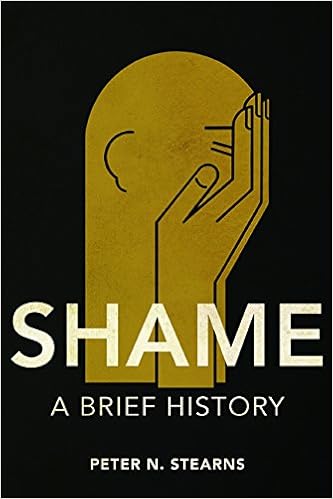In my work helping my clients manage PTSD, cPTSD, and high-functioning anxiety, many clients feel trapped by guilt and self-blame. That is precisely why I found Peter Stearns’ brilliant, thought-provoking book, Shame: A Brief History, to be a professional must-read.
The Book: What Shame is Doing Now
Stearns does a fantastic job of charting how shame is used across societies, from ancient norms to its current, powerful resurgence on social media.
The Internet's New Weapon: Stearns points out that while the rise of individualism lessened the formal use of shame as a tool of control in the West, it has surged back through the anonymity of the internet. This validates what you feel every day: that the fear of public judgment (anxiety) is very real and constantly evolving.
The Cultural Lens: My work in a collective and hierarchical culture like Malaysia often exposes me to traditional uses of shame that can be incredibly damaging. Stearns' historical perspective immediately helped me pull together thoughts on how cultural expectations—past and present—stack the deck against survivors, forcing silence in the face of abuse.
Why This History of Shame is Key to Your Healing
Reading this book is not just an academic exercise; it’s a critical step toward healing because it externalizes your pain.
It’s Not Your Fault: The book proves that shame is a social tool, not an inherent flaw in your character. If you are a victim of abuse who was blamed or silenced, this work validates your experience by showing that societies often shame the victim to protect the system. Understanding this can be the first, powerful release from the cycle of self-blame that fuels cPTSD and depression.
Deconstructs Your Internal Critic: For my high-achieving clients (lawyers, managers, doctors), your anxiety is often a fear of professional shaming or failure. Stearns’ work helps you deconstruct where those rules came from and why you carry them so heavily. It gives your logical mind the proof it needs to begin dismantling the power of that toxic internal voice.
Inspires Change: Just like the shifts Stearns documents in history, we are seeing change today. I see people standing up for victims, even in collective societies. This book is a powerful reminder that the system can be challenged, and your own healing journey is part of that larger, courageous movement.
Shame: A Brief History is a must-read for anyone who feels overwhelmed by self-criticism. It’s a book that truly makes me better at my job. Thanks to NetGalley for the advance review copy.
If you’ve realized your shame is a heavy cultural burden and you’re ready to finally put it down, let’s talk.


